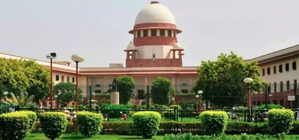Headlines
Saraswati-Lakshmi puja at home but no concern for daughters: SC rebukes Jharkhand man

New Delhi, Jan 24
The Supreme Court made a scathing remark on Friday while hearing the petition of Yogeshwar Sao, a resident of Hazaribagh, Jharkhand, convicted in a dowry harassment case.
A Bench comprising Justice Surya Kant and Justice N. Kotiswar Singh criticised the appellant for neglecting his daughters and mistreating his wife.
The Bench remarked, "What kind of man are you who does not even care for his daughters? How can we allow such a heartless person to come to our court? All day at home, sometimes Saraswati Puja, sometimes Lakshmi Puja... and then all this."
The court emphasised that any relief for the petitioner would only be considered if he agreed to transfer agricultural land to his daughters.
Yogeshwar Sao, also known as W. Sao, a resident of Katkamdag village, was convicted in 2015 under Section 498A of the Indian Penal Code by the Chief Judicial Magistrate Court of Hazaribagh which found him guilty of harassing his wife, Poonam Devi, for a dowry of Rs 50,000 and sentenced him to two-and-a-half years of imprisonment.
Sao and Devi were married in 2003 and had two daughters. In 2009, Poonam Devi filed an FIR alleging dowry harassment, forced surgical removal of her uterus, and her husband's subsequent remarriage.
She also filed a petition in the family court for maintenance for herself and her daughters. The family court ordered Sao to pay Rs 2,000 per month to his wife and Rs 1,000 per month to each daughter until they reached adulthood.
Sao appealed against his conviction in the Jharkhand High Court, which upheld the trial court's verdict in September 2024.
However, the High Court reduced his sentence to one-and-a-half years, citing lack of evidence regarding the allegations of forced surgery and remarriage. Additionally, the High Court imposed a fine of Rs 1 lakh on Sao.
Following this, Sao approached the Supreme Court in December 2024 seeking relief.
During the hearing, the Supreme Court reiterated the importance of ensuring the welfare of Sao's daughters and condemned his behaviour. The court made it clear that no relief would be granted unless he demonstrated accountability, including transferring his agricultural land to his daughters.



































